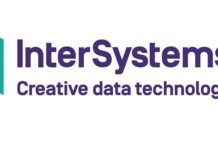Building on efforts last year by the Quality Cancer Care Alliance (QCCA) to create the first clinically integrated network (CIN) in oncology in the United States, QCCA has launched IQ Oncology, its Management Services Organization (MSO), as a means to most effectively deliver cancer care across the membership’s 17 independent practices covering 16 States.
IQ Oncology will develop value-based programs in oncology and deploy strategies to provide direct-to-plan-sponsor oncology services, engage in activities supportive of and ancillary to these functions, including drug costs, insurance networks and deployment of effective, quality care.
Since launching its CIN last year, QCCA’s goal has been on improving the quality of oncology care through delivering the most effective therapies, diagnostics, processes and research in service of its patients. Its members are utilizing clinical pathways and sharing data in order to reveal more effective, as well as more cost-efficient, ways to improve the quality of the care.
“With IQ Oncology we now have a strong framework to support our value-based organization and improve the quality of cancer care and health economics within the independent oncology community,” said Sibel Blau, MD, President and CEO of QCCA Network and IQ Oncology. “The ability to attract investment into our data analytics and better support our members with those investments gives us the unique opportunity to better serve many more patients across the country, utilizing the best in clinical pathways while focusing on reducing the high cost of care and bringing innovative solutions to the employer market.”
The initial concept for the CIN centered around the need to innovate on the clinical side of care as well as addressing the business side of healthcare delivery, including providing excellence in the patient experience and re-shaping outdated models dictating how healthcare dollars are spent. The MSO provides the infrastructure to implement that innovation across member practices.
“Utilizing data analytics to reveal clinical patterns and opportunities for earlier interventions and quality improvement, adherence to defined best practices in clinical pathways across a broad network of physicians, and deploying a national network to bring pressure for updating outmoded systems of cost, payment and investments, is what attracted us to join the Network,” said Robin Zon, MD, FACP, FASCO, President of Michiana Hematology Oncology, a QCCA Network member. “Putting the right data in the right hands at the right time is the way to re-shape the face of cancer care in this country, and IQ Oncology provides the ability for the independent oncology community to do just that.”
“Collaboration and support of independent practices is the key to improving healthcare outcomes in oncology. QCCA Network has grown substantially in a few short years; developing IQ Oncology allows us to further our membership and support practices in a way that has not been possible before today,” said Thomas Gribbin, MD, Cancer and Hematology Centers of West Michigan, a member of QCCA Network.

























